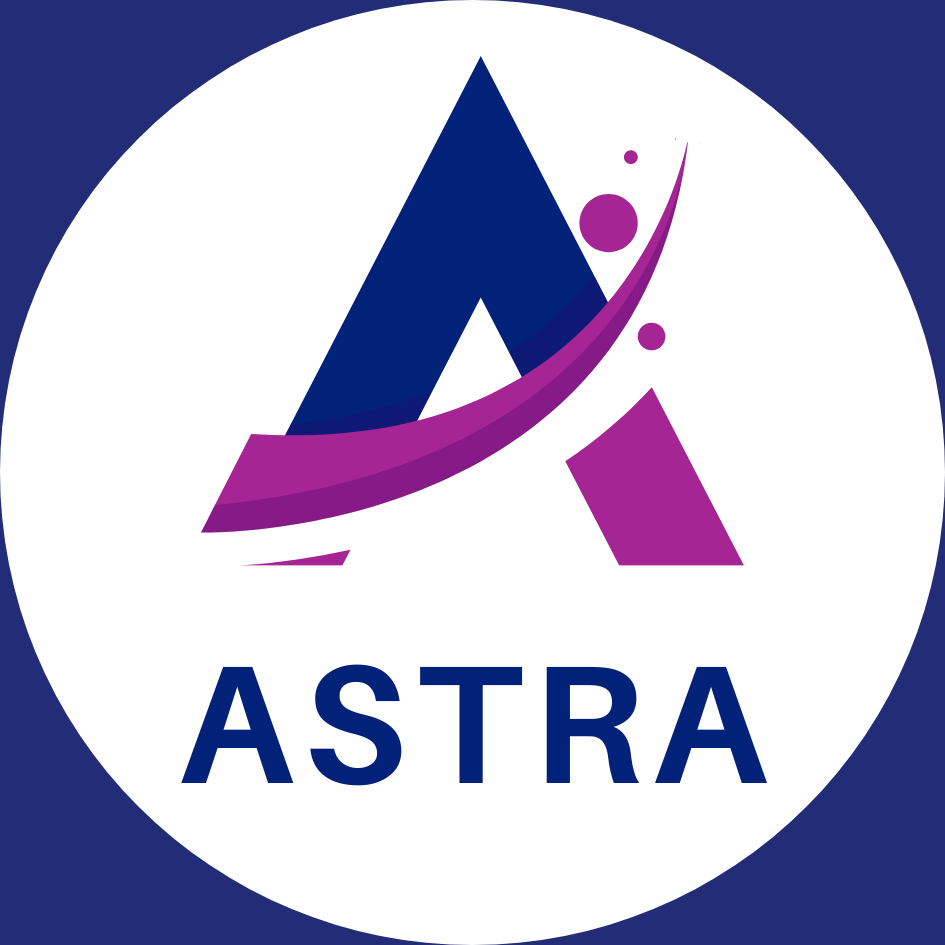With the increasing digitalization of the world, digital marketing has become an essential tool for all companies, including small ones.
This comprehensive guide will offer an overview of digital marketing for small businesses, covering everything from the importance of digital marketing to specific strategies that can be used to achieve success online.
In the next topics, you will find valuable information to navigate the world of digital marketing and grow your company in the digital space.
If you’re an entrepreneur or small business owner looking for ways to expand your online presence, this guide is for you. Follow along!
Why is digital marketing important for small businesses?
Digital marketing has become a crucial element for the success of all companies, regardless of size. For small businesses, in particular, it offers a unique opportunity to compete on an equal footing with larger companies with a much smaller budget.
Digital marketing allows small businesses to reach a wider audience, increase brand visibility, better connect with customers, and even drive sales and leads.
Additionally, it is measurable, allowing companies to see the exact return on their investments and adjust their strategies as needed.
How to start with digital marketing for a small business?
Starting a digital marketing journey may seem like a challenge for small businesses, but with the right steps, it is possible to create an effective strategy. Firstly, it is essential to understand digital marketing and how it can benefit your business.
It is a set of advertising strategies in online environments that seek to attract new business, create relationships, and develop a brand identity.
Now that you understand the importance of digital marketing, the next step is to start planning.
As with any business strategy, planning is crucial to digital marketing success.
Digital Marketing Planning for Small Business
With effective digital marketing planning, small businesses can establish a robust online presence and reach their target audience more accurately.
This process involves defining goals and KPIs, identifying the target audience, and evaluating the budget and available resources.
We will explore each of these aspects in detail in the following topics. Remember, planning is the key to success in any marketing strategy.
Be ready to dive into the details and discover how digital marketing planning can transform the future of your small business.
Setting goals and KPIs
Setting goals and KPIs is crucial in digital marketing planning for small businesses. Goals are the general objectives that the company wants to achieve, such as increasing brand visibility or improving sales.
KPIs (Key Performance Indicators) are specific metrics that help measure progress towards these goals.
For example, if the goal is to increase sales, a relevant KPI might be the conversion rate of website visitors to customers. Goals and KPIs must be realistic, measurable, and aligned with the company’s business objectives.
This process allows the company to track its success and adjust as needed. Therefore, it is fundamental to any effective digital marketing strategy.
Remember, it’s important to set goals and KPIs before starting any digital marketing campaign. This will allow you to evaluate the success of your initiatives and make adjustments as needed.
Identifying the target audience
Identifying your target audience is a crucial step in digital marketing planning for small businesses. By clearly understanding who your ideal customers are, you can create more effective and targeted campaigns.
Start by researching your existing customers’ demographic, behavioral, and psychographic characteristics. You can use online analytics tools to collect this data.
Additionally, consider conducting surveys and interviews to gain deeper insights.
Once you have identified your target audience, you can customize your digital marketing strategies to meet their specific needs and interests. Remember, the goal is to attract them and convert them into loyal customers.
Budget and available resources
When it comes to digital marketing for small businesses, it’s crucial to consider your budget and available resources.
Remember, digital marketing doesn’t have to be expensive to be effective. Several low-cost strategies can make a big impact. The trick is knowing where and how to invest your resources.
This may vary depending on your industry, target audience, and business goals. For example, if you have a younger audience, investing in social media advertising may be more beneficial than paid search ads.
Additionally, free or low-cost digital tools can be helpful for marketing automation, data analysis, and customer engagement.
So, even with a limited budget, you can make an effective and robust digital marketing plan for your small business.
Online Presence: Website and SEO
An online presence is essential for any company, regardless of its size. For small businesses, optimizing a website for SEO (Search Engine Optimization) can be the difference between success and failure.
In this section, we will cover the importance of having a user-friendly and responsive website, how to optimize your website for search engines, and the relevance of producing quality content.
Stay tuned, as these strategies can boost your small business’s digital marketing.
Development of a user-friendly and responsive website
Developing a user-friendly and responsive website is crucial for any small business that wants to perform well in the digital world. A user-friendly website is one that is easy to navigate, with an intuitive structure and content that is relevant to the user.
The website must be responsive; that is, it must adapt to any screen size, from desktops to mobile devices. This is especially important considering that most users access the internet through smartphones.
Additionally, a responsive website is an important ranking factor for Google.
Therefore, having a user-friendly and responsive website is a matter of providing a better user experience and optimizing your website’s position in search engines.
Search Engine Optimization (SEO)
Search engine optimization, better known as SEO (Search Engine Optimization), is essential for your website to be easily found in search engines, such as Google.
SEO involves a series of strategies that aim to improve your website’s visibility in organic search engine results.
By optimizing your website for SEO, you will be helping search engines better understand what your website offers, thus increasing the chances of your website appearing in the top positions of search results.
This is essential to attract more visitors to your website and, consequently, potential customers for your business.
Several SEO techniques can be applied, such as keyword optimization, creating relevant and quality content, and optimizing site speed, among others.
Although SEO is a long-term strategy, the results can be very rewarding. Your business will be more visible online, attract more visitors, and have a better chance of converting those visitors into customers.
Therefore, investing in SEO is essential for your small business’s digital marketing success.
Quality and relevant content
One of the pillars of digital marketing for small businesses is producing quality and relevant content. This means creating materials that interest your target audience, adding value, and attracting and retaining users’ attention.
Having high-quality content is essential to the success of your digital marketing strategy.
Additionally, relevant content helps improve your website’s ranking in search engines, increases your brand’s visibility, and can help generate leads and sales.
It is important to remember that the relevance of content depends on understanding your target audience’s needs and interests.
Therefore, it is essential to know your audience well to be able to create content that is truly relevant to them.
Online Advertising (PPC)
Online advertising, or Pay-Per-Click (PPC), is an essential digital marketing strategy for small businesses. It allows you to reach a broader, more targeted audience, maximizing your brand’s visibility.
In this segment, we’ll explore creating paid advertising campaigns, using popular platforms like Google Ads and Facebook Ads, and effective budgeting strategies for PPC. Be ready to transform your investments into real results for your business.
Paid advertising campaigns
Paid advertising campaigns are an effective digital marketing strategy that can bring quick results for small businesses. They allow you to reach your target audience precisely, increasing your brand’s visibility and attracting more customers.
However, to ensure the success of your campaigns, it is essential to carefully plan and regularly monitor their performance.
This includes clearly defining your goals, choosing the right platforms to run your ads, creating engaging and relevant ads, and setting an appropriate budget.
Remember, the success of your paid advertising campaigns depends not only on how much you spend, but also on how you spend it.
Google Ads and Facebook Ads
The Google Ads and Facebook Ads platforms are powerful tools for driving traffic to your website and increasing your brand’s visibility.
Google Ads is ideal for reaching users who are actively searching for products or services similar to yours.
On the other hand, Facebook Ads allows you to target people based on their interests and online behaviors, making it easier to reach the right audience.
With a well-planned and optimized strategy, these platforms can bring significant results to small businesses.
Budgeting Strategies
Budgeting strategies are vital to the success of any online advertising campaign, especially for small businesses that need to maximize the use of their resources.
Several strategies can be used to ensure that your budget is well spent and generates the maximum return possible.
Firstly, it is crucial to clearly define the objective of your campaign. This could be increasing brand awareness, generating leads, increasing sales, etc. With a defined goal, you can then allocate your budget more effectively.
Additionally, it is crucial to monitor and adjust your campaigns regularly. This will allow you to identify which aspects of the campaign are working and which are not, allowing you to reallocate your budget as needed to maximize your return on investment.
Finally, it is important to remember that quality is more important than quantity. Spending your entire budget on ads that are not effective is a waste of resources.
Ensure you’re investing in high-quality ads that reach your target audience and achieve your marketing goals.

Content Marketing for small businesses
Content marketing is a powerful strategy for small businesses. It can help build your brand, increase online visibility, and generate leads. However, creating relevant and engaging content can be challenging.
In this segment, we’ll explore how to create and share relevant content, utilize different content formats like blogs, videos, and infographics, and implement effective engagement strategies.
This guide will equip you with the tools and knowledge to take your content marketing strategy to the next level.
Creating and sharing relevant content
Creating and sharing relevant content is essential for any digital marketing strategy. As a small business, you may not have a dedicated content team, but you can still produce high-quality content.
Start by identifying topics that are relevant to your target audience. Use keyword research tools to discover the terms people seek in your industry.
Once you have a list of topics, start creating content around those ideas. Remember, content doesn’t always have to be written. It could be a video, a podcast, an infographic, or even a social media post.
The important thing is that it is relevant and of value to your audience. Once the content is ready, share it across your digital marketing channels. This can include your website, blog, social media, and email marketing.
Sharing content not only helps increase your brand visibility but also establishes your company as an authority in your field.
Blogs, videos, and infographics
Blogs, videos, and infographics are powerful content marketing tools for small businesses. They can capture the attention of the target audience and convey information effectively and engagingly.
Blogs provide a space to share in-depth insights, company news, and useful information with your audience.
Videos, in turn, allow you to dynamically present products or services, while infographics make it easier to understand complex data.
These resources can drive traffic to your website, improve search engine positioning, and increase brand awareness when well-produced and strategically used.
Remember, content must be relevant and valuable to your audience, as this will encourage customer engagement and loyalty.
Engagement strategies
Engagement strategies are crucial to maintaining audience interest in your content and, consequently, in your brand. The idea is to create a lasting relationship with your audience, encouraging interaction and engagement with your content.
This can be done through various actions, such as publishing content encouraging comments and sharing, conducting surveys and polls, and creating contests and challenges.
Furthermore, responding to your audience’s comments and messages is essential, showing that they are heard and valued. Remember, engagement is key to turning followers into customers.
Marketing Digital Local
Local Digital Marketing is a key strategy for small businesses that want to reach consumers in their specific geographic area.
By focusing on localized digital marketing tactics, you can attract customers who are actively searching for products or services that your business offers where you operate.
Local Search Optimization
Optimizing for local search is a crucial aspect of digital marketing for small businesses. That’s because consumers often use search engines to find local businesses.
If your business isn’t optimized for local search, you can miss out on many potential businesses.
Optimizing for local search involves a variety of strategies, including including local keywords on your website, ensuring your contact information is correct in online directories, and optimizing your website for mobile devices.
Additionally, it’s important to ensure your business has positive reviews online, as this can affect your rankings in local search results.
Remember, optimizing for local search is not a one-time process. You need to constantly monitor your performance and make adjustments as needed to ensure your business remains visible to local customers.
Registration in local directories
Registering your business in local directories is an effective local digital marketing strategy. Doing this increases your company’s visibility in your region, making it easier for potential customers to find you.
Additionally, local directories often have high domain authority, which can improve your website’s SEO. Some popular options include Google My Business, Yelp, and Yellow Pages.
But remember, it’s important to keep your business information up to date in these directories to avoid confusion and ensure customers can get in touch easily.
Geographic marketing strategies
Geographic marketing strategies are vital tools for small businesses that want to reach a specific audience in a defined location.
This type of marketing focuses on optimizing online visibility in specific geographic areas to increase the customer base and, consequently, sales.
This can be done through tactics like location-targeted ads on Google Ads, local SEO, and listings in local online directories.
An effective geographic marketing strategy starts with understanding your target audience. Who are they? Where do they live? What are their interests and purchasing behaviors? With this information, you can create more targeted and effective marketing campaigns.
Another important part of geographic marketing is ensuring your business is easily found online. This includes having an SEO-optimized website, being present in relevant online directories, and having an active presence on social media.
Finally, evaluating and adjusting your geographic marketing strategies regularly is crucial to ensuring long-term success. This may involve monitoring key metrics such as website traffic, leads generated, conversions, and sales and adjusting your tactics as necessary.
Remember, geographic marketing is a long-term strategy that requires time and effort to be effective. But with the right planning and execution, it can be a powerful way to increase your small business’s visibility and profitability.
Conclusion
We conclude, then, that digital marketing for small businesses is an essential tool for business growth and success.
With the right planning, effective use of resources, and application of proven strategies, it is possible to reach a wider audience and stand out in an increasingly competitive market, whether you are a hotel or a store owner in your city.
Here at Astra Digitals, we understand that each company is unique, which is why we offer customized solutions to meet your specific needs.
If you’re ready to take your business to the next level, contact us to learn more about how our digital marketing agency can help your small business achieve its goals.



